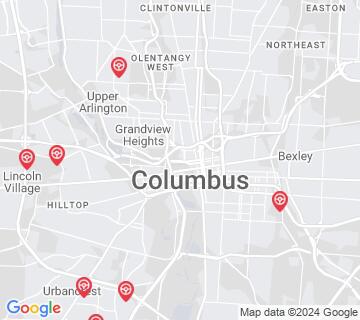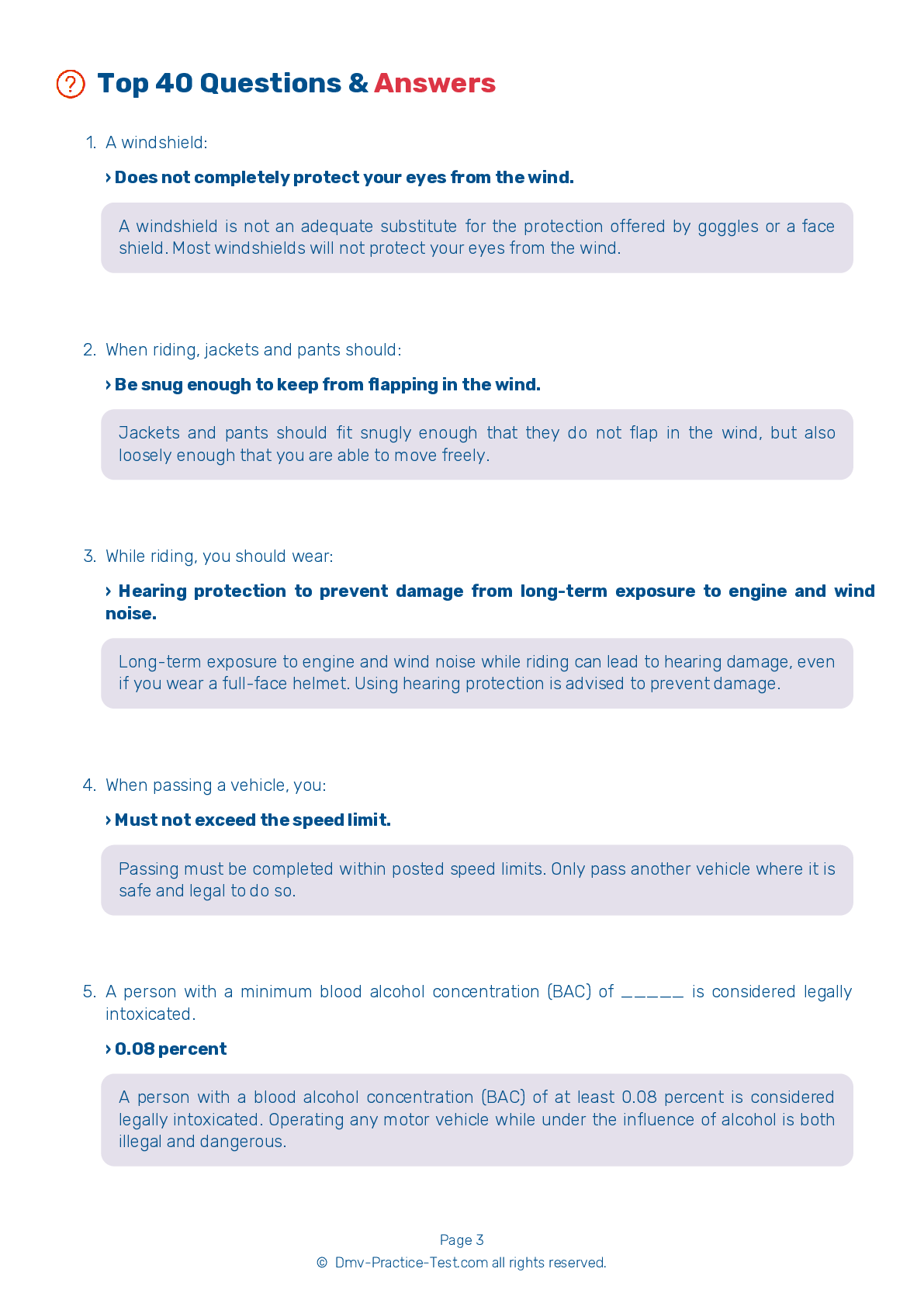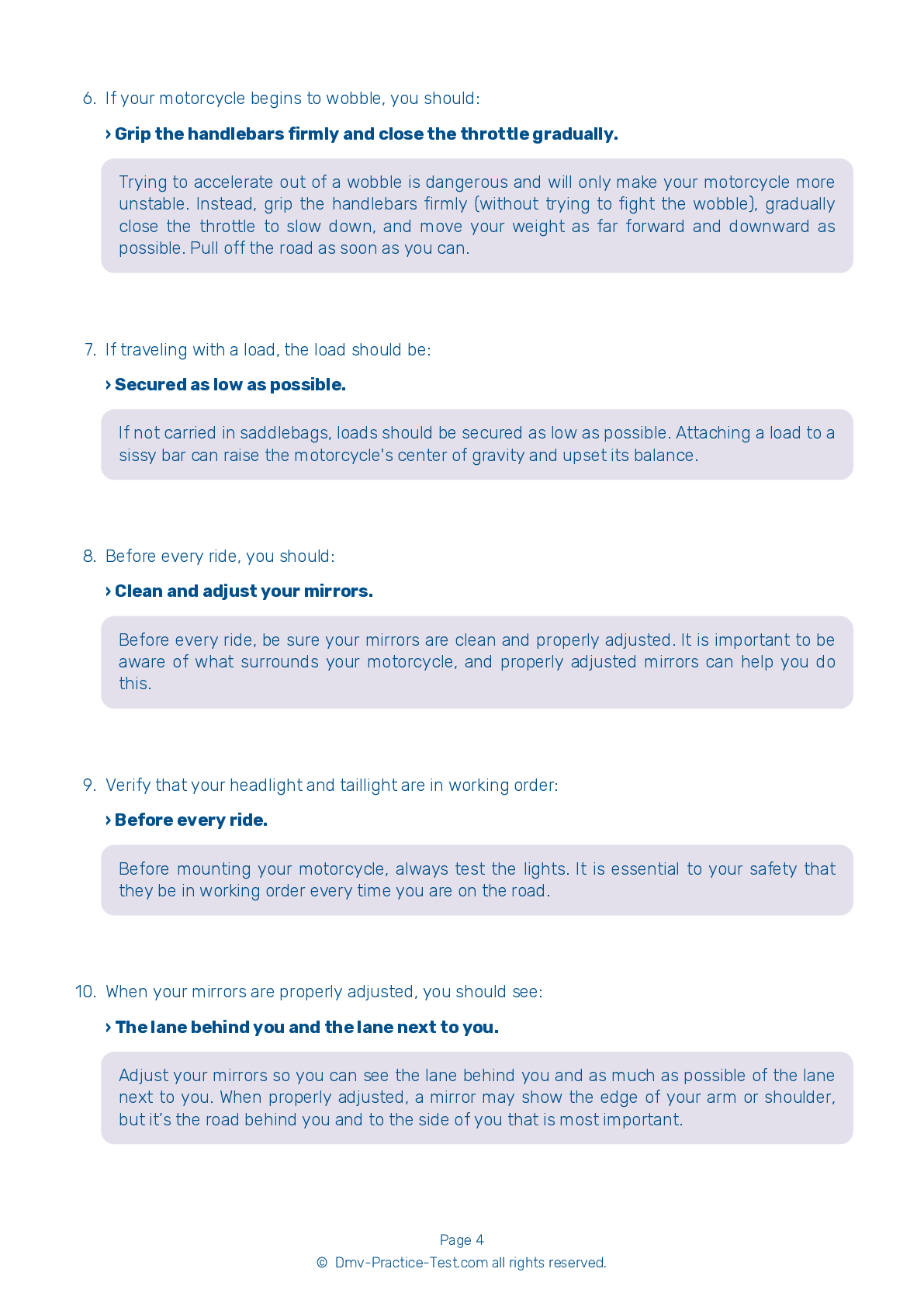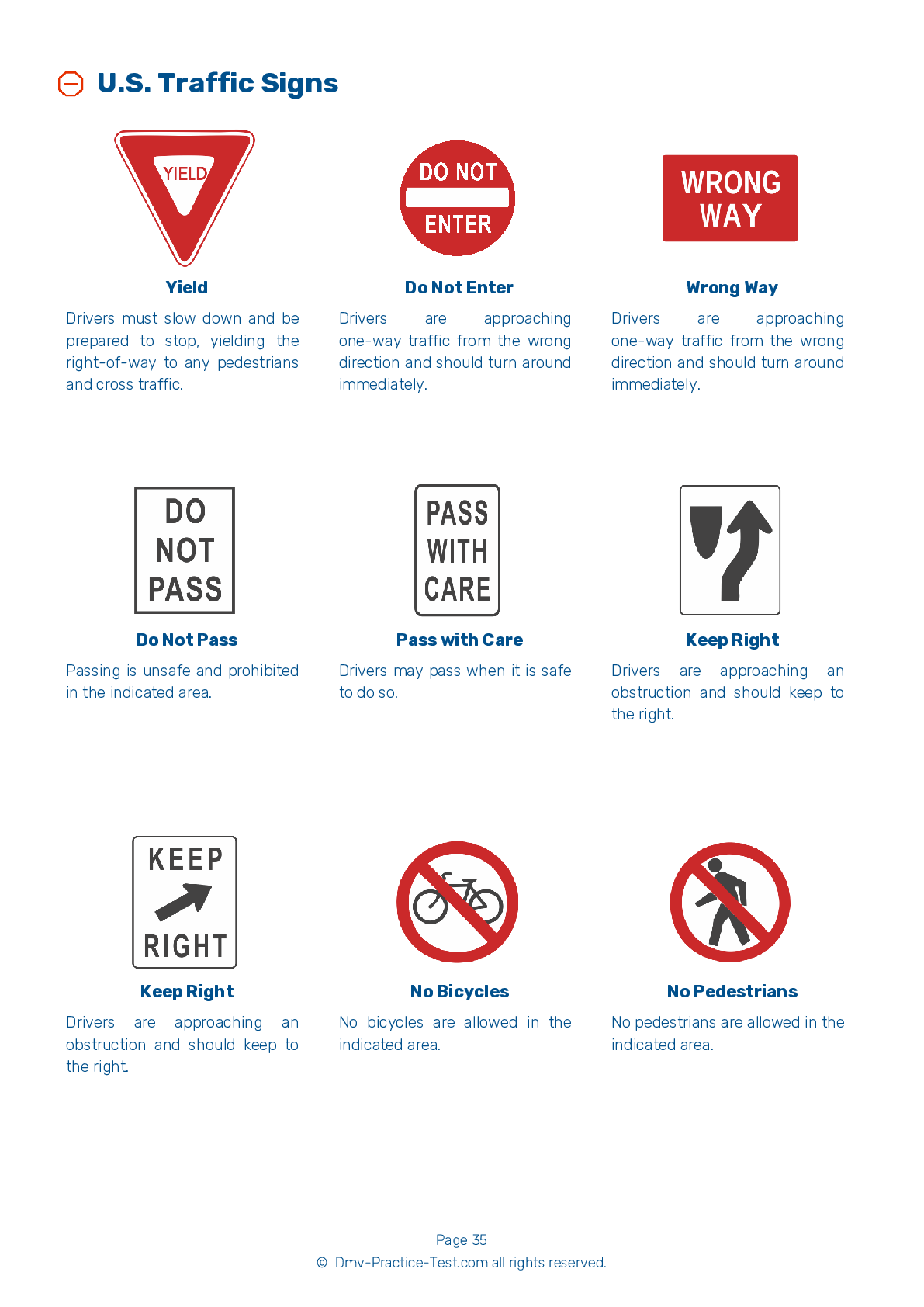DMV Permit Test #10
Motorcycle Test | License OH 2024 | FREE Online Practice! #10 Page 3 of 5
Take this FREE motorcycle test (license in OH 2024) to check your knowledge of the road rules. To improve your results, download a motorcycle handbook online, study theory, and practice for free on our website. Still worried about how to get a motorcycle license in Ohio in 2024? Check our website for more sample tests, train as much as possible, and boost your grades!
40
30
16
17 . Since most crashes happen in daylight, you:
Most motorcycle crashes happen in broad daylight. To make yourself more noticeable, wear brightly-colored clothing when riding, even during the daytime.
18 . When preparing to pass a vehicle on the left, it is important to ride on the left side of your lane because:
It will place you in the rearview mirror of the car in front of you.
When preparing to pass on the left, you should ride in the left portion of your lane. This lane position will increase your line of sight and make your more visible to oncoming traffic.
19 . What should a motorcyclist do to prevent possible injury when riding on a slippery surface?
Ride on the shoulder.
When riding on a slippery surface, it is safest to decrease your speed. Making sudden moves on a slippery surface could cause your motorcycle to skid. Do not travel on the shoulder to escape a slippery road.
20 . When turning a three-wheeled motorcycle, there is a tendency for:
All wheels to leave the pavement.
During a turn, inertia causes the motorcycle's center of gravity to shift sideways and outward toward the tip-over line. The reduced weight over the opposite side wheel can cause it to lift slightly. The tendency of the rear inside wheel to lift when turning is greater with increased speed.
21 . When you see this sign, you should:
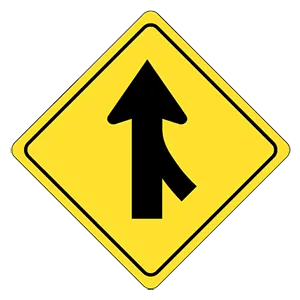
Warning signs alert drivers to upcoming hazards and are usually yellow with black markings. This sign warns drivers about potential traffic merging into their lane from the right.
22 . To swerve correctly, you should:
To swerve away from a hazard, apply a small amount of pressure to the handgrip located on the side of your intended escape.
23 . Use your headlight:
When closely following another vehicle.
Use your high beam whenever you are not following or meeting a car, even during the day. Use your low beam when riding in fog.
24 . It may be unsafe to ride alongside another vehicle in the lane next to you because:
If you ride directly alongside a vehicle that is in the lane next to you, the driver may not see you because you are in their blind spot. They may begin merging into your path without knowing you are there. Additionally, if you are directly next to another vehicle, the vehicle will block your path of escape if a hazard should appear in your lane.
Search the best driving school in your neighbourhood
2024 Ohio | Frequently Asked Questions
To acquire a motorcycle license in Ohio, you must first obtain a motorcycle learner's permit by passing a written test. After practicing with the permit, you can take a skills test to get your license. Alternatively, you can complete a Motorcycle Ohio Rider Education Course, which includes the skills test. You must be at least 15 and a half years old to start this process.
In Ohio, the minimum age to obtain a motorcycle license (endorsement) is 16. Applicants under 18 must have a valid probationary license, complete a basic rider course, and get a parent or guardian's approval. They must also pass the motorcycle knowledge test, vision screening, and on-cycle skills test to qualify for the license.
Yes, you do need a dedicated license to ride a motorcycle in Ohio. It's called a motorcycle endorsement, which gets added to your existing driver's license. To obtain this, you need to pass a knowledge test and an on-cycle skills test. Alternatively, completion of an approved Motorcycle Safety Foundation course can waive these tests.
In Ohio, to apply for a motorcycle driver's license you need a valid Ohio driver's license, proof of your Social Security number, proof of legal presence in the U.S., and proof of your name, date of birth, and Ohio residency. For minors, a parent or guardian must also provide written consent.
Yes, you will need to take a written exam to obtain a motorcycle license in Ohio. The test covers motorcycle operation and safety rules. However, if you complete an approved Motorcycle Safety Foundation course, the written and on-cycle skills tests can be waived. But remember, a vision screening test is still mandatory for all applicants.
The written test for a motorcycle license in Ohio covers a variety of topics related to motorcycle safety and operation. These include understanding traffic signs and signals, proper riding techniques, navigating intersections, handling emergencies, and Ohio's specific motorcycle laws. The test is designed to ensure that riders have the knowledge necessary to safely operate a motorcycle on the road.
In Ohio, completion of a Motorcycle Safety Foundation (MSF) course can waive the written and on-cycle skills tests required for a motorcycle endorsement. After successfully completing the course, you'll receive a completion card which you can present at a Driver Exam Station to have the tests waived. However, you still need to pass a vision screening test.
To enroll in a Motorcycle Ohio Rider Education Course, visit the Ohio Department of Public Safety's website. You must be at least 15 and a half years old. Choose a course and location that suits you, then register and pay the fee online. The course includes both classroom instruction and hands-on training. Completion of the course includes the skills test for licensing.
No, you don't need to own a motorcycle to take the license test in Ohio. You can use any motorcycle that is insured, registered, and meets all legal safety requirements. However, it's crucial that you have permission to use the motorcycle and feel comfortable operating it for the test.
Yes, you can use a friend's motorcycle for the driver's license test in Ohio, but the motorcycle must be street-legal, registered, and insured. Also, you must have written permission from the owner if the owner is not present at the test. Remember that you are responsible for providing a safe and appropriate vehicle for your test.
Yes, during Ohio's motorcycle driving exam, specific handling skills are tested. These include starting and stopping, turning and swerving, and proper use of the clutch and throttle. You'll also be evaluated on signaling, maintaining a safe distance from other vehicles, lane positioning, and defensive driving techniques. It's crucial to demonstrate control and safety throughout the test.
Yes, in Ohio, new motorcycle drivers with a Temporary Instruction Permit Identification Card (TIPIC) face several restrictions. They are not allowed to ride at night, on interstate or limited access highways, or carry passengers. They must also always wear a helmet and protective eyewear. These limitations are lifted once they obtain a full motorcycle license.
Yes, your Ohio motorcycle license will permit you to ride a motorcycle in other states. Motorcycle licenses, like regular driver's licenses, are recognized across all 50 states due to the Full Faith and Credit Clause of the U.S. Constitution. However, you must follow the specific motorcycle laws of each state you're in.
In Ohio, only certain riders are required to wear a helmet while operating a motorcycle. Helmets are mandatory for riders under the age of 18 and for those with a "novice" designation on their license. However, it is highly recommended that all motorcyclists and their passengers wear helmets for safety reasons, regardless of age or experience level.
Yes, in Ohio, there are two types of motorcycle licenses: TIPIC (Temporary Instruction Permit Identification Card) and a full motorcycle license. The TIPIC is valid for one year and allows you to practice riding. The full motorcycle license, obtained after passing a skills test, gives you complete legal authority to operate a motorcycle on public roads.
Yes, you can add supplementary endorsements to your motorcycle license in Ohio. These endorsements allow you to operate different types of motorcycles. To add an endorsement, you must pass a written and skills test for that specific type of motorcycle. Check with the Ohio Bureau of Motor Vehicles for more details on the process.
Yes, the motorcycle license test in Ohio is available in multiple languages to accommodate non-English speakers. However, it's advisable to check with your local BMV office for the list of languages they offer for the test. They can provide you with an interpreter or translated written tests based on availability.
An effective strategy to prepare for the motorcycle license test in Ohio is to study the Ohio Motorcycle Operator's Manual thoroughly. It contains all the information you'll be tested on. You can also take practice tests available online to familiarize yourself with the format of the exam and gauge your preparedness. Remember, practical riding practice is also essential for the skills test.
Yes, the Ohio Bureau of Motor Vehicles (BMV) offers the motorcycle written exam in several languages other than English. These include Spanish, French, Arabic, and many others. It's advisable to contact your local BMV office in advance to ensure the test is available in your preferred language.
If you do not pass the motorcycle written test in Ohio, you are allowed to retake it. However, you must wait at least 24 hours before attempting the test again. It's recommended to review the Ohio Motorcycle Operator's Manual thoroughly before retaking the test to increase your chances of passing.
